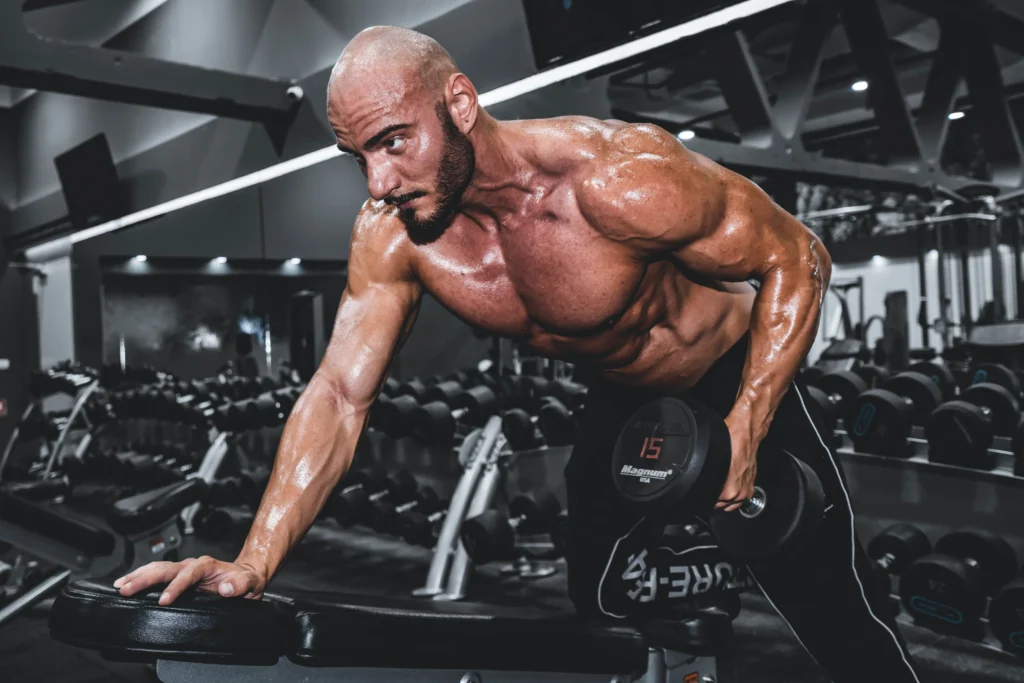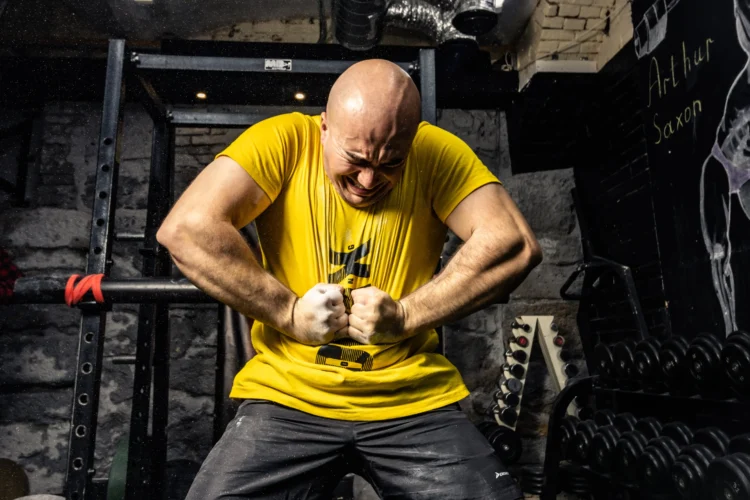There has been a lot of talk about the potential connection between creatine supplementation and hair loss. Many people are wondering if this popular sports and nutritional supplement can actually lead to hair loss. In this article, we will examine the current research and separate myth from reality.
Key Takeaways:
- Creatine supplementation does not directly cause hair loss.
- One study found an increase in a hormone associated with hair loss, but no actual hair loss was reported.
- No other clinical trials have replicated these findings, emphasizing the need for further research.
- Genetics, hormonal factors, and medical conditions are the primary contributors to hair loss.
- Creatine supplementation has various benefits and is considered safe when used appropriately.
What the Research Says about Creatine and Hair Loss
Research on the relationship between creatine and hair loss has yielded interesting findings. Contrary to popular belief, studies have shown that creatine supplementation does not directly cause hair loss.
The association between creatine and hair loss primarily stems from a single study that found a temporary increase in dihydrotestosterone (DHT) levels during creatine supplementation.
DHT is a hormone derived from testosterone and is known to play a role in hair loss. However, it is important to note that the increase in DHT observed in the study participants remained within normal clinical limits and did not lead to actual hair loss.
No other clinical trials have been able to replicate these findings, which emphasizes the need for further research to establish a more concrete understanding of the relationship between creatine and hair loss.
While the initial study suggests a potential connection between creatine supplementation and DHT levels, it is important to interpret these findings with caution and consider the broader context of hair loss.
“Studies have shown that creatine supplementation is not directly linked to hair loss. One study found a temporary increase in DHT levels during creatine supplementation, but this did not result in actual hair loss.”
Further research is necessary to elucidate the mechanisms behind hair loss and the potential role of creatine in exacerbating or mitigating its occurrence.

| Key Points | Research Findings |
|---|---|
| Association with hair loss | No direct link between creatine supplementation and hair loss |
| Increased DHT levels | DHT levels may transiently increase during creatine supplementation |
| Clinical significance | The observed increase in DHT remains within normal limits and does not result in hair loss |
| Need for further research | No other studies have replicated the initial findings, highlighting the necessity for additional research |
The Science Behind Creatine and Hair Loss
Hair loss is a complex issue influenced by various factors, including genetics, hormones, and medical conditions. While there is a known association between hair loss and dihydrotestosterone (DHT), the role of creatine in increasing DHT levels and potentially contributing to hair loss is not fully understood.
DHT, a hormone derived from testosterone, can bind to hormone receptors in hair follicles, leading to shorter and thinner hair growth cycles. It is believed that individuals with certain genetic variations and higher activity of the enzyme responsible for converting testosterone to DHT may be more predisposed to hair loss.
“Hair loss is a multifactorial issue influenced by genetics, hormones, and certain medical conditions.”
The increase in DHT levels observed in one study during creatine supplementation suggests a potential relationship between creatine and hair loss. However, it is important to note that this increase remained within normal clinical limits, and no hair loss was reported among the participants.
Further research is necessary to determine the significance of this association and understand the precise mechanisms by which creatine supplementation might impact hair follicles and DHT levels.
| Factors Influencing Hair Loss |
|---|
| Genetics |
| Hormonal factors |
| Medical conditions |
| DHT levels |
| Androgen receptor gene variations |
| Activity of the testosterone-to-DHT conversion enzyme |
The Benefits and Safety of Creatine Supplementation
Creatine supplementation has been extensively studied and has shown numerous benefits in various aspects related to muscle mass, athletic performance, brain function, and age-related muscle loss.
Research has consistently indicated that creatine supplementation can significantly increase muscle mass and strength, making it a popular choice among athletes and bodybuilders. The use of creatine as a performance-enhancing supplement has been widely recognized and supported by scientific evidence.
Moreover, creatine has been shown to improve exercise performance, particularly during high-intensity, short-duration activities such as weightlifting and sprinting. It helps to enhance muscle power, reduce fatigue, and promote faster recovery between intense bouts of exercise.
According to a study published in the Journal of Strength and Conditioning Research, creatine supplementation has been associated with improvements in repetitive sprint performance, maximal strength, and total work performed during high-intensity exercise.
Furthermore, research has also demonstrated that creatine supplementation can have cognitive benefits. It has been shown to enhance brain function and improve cognitive performance, particularly in tasks that require short-term memory and quick thinking.
“Creatine supplementation has been reported to have positive effects on cognitive function and psychological well-being, especially in tasks with a high cognitive demand,” stated a study published in the Journal of Clinical Psychopharmacology.
Importantly, numerous studies have focused on the safety of creatine supplementation and have not identified any direct negative effects on kidney function or fluid balance. Creatine is considered safe for most adults when used within appropriate doses and guidelines.
However, it is important to exercise caution when considering creatine supplementation in adolescents. The safety of creatine use in this population is still under investigation, and it is recommended to consult a healthcare professional before starting any supplementation regimen in this age group.
Overall, the benefits of creatine supplementation for muscle mass, athletic performance, cognitive function, and age-related muscle loss have been extensively researched and supported.
When used responsibly and in consultation with a healthcare professional, creatine can be a safe and effective supplement to enhance physical and cognitive performance.

Conclusion
After reviewing the current research, it can be concluded that there is no substantial evidence to support the notion that creatine supplementation directly causes hair loss.
While one study reported an increase in dihydrotestosterone (DHT) levels during creatine supplementation, no hair loss was observed among the participants. Furthermore, no other clinical trials have replicated these findings, highlighting the need for additional research on the relationship between creatine and hair loss.
Although DHT, a hormone derived from testosterone, is associated with hair loss, the role of creatine in increasing DHT levels and contributing to hair loss is not fully understood.
Genetic factors, variations in the androgen receptor gene, and the activity of the enzyme responsible for converting testosterone to DHT are also factors that influence hair loss.
While the increase in DHT observed in the aforementioned study suggests a potential connection, more research is required to determine the significance of this association.
Creatine supplementation has been extensively studied and has demonstrated various benefits, including improved muscle mass, athletic performance, brain function, and age-related muscle loss. Research has not found any direct negative effects on kidney function or fluid balance.
When used appropriately and within recommended doses, creatine is generally considered safe for most adults. However, it is advisable to consult a healthcare professional before starting creatine supplementation, particularly if you have any underlying medical conditions or concerns.
FAQ
Does creatine cause hair loss?
No, current research does not indicate that creatine directly causes hair loss. While there have been concerns about the potential connection between creatine and hair loss, a study found an increase in a hormone associated with hair loss (DHT) during creatine supplementation, but no actual hair loss was reported among the participants. More research is needed to understand the relationship between creatine and hair loss.
What is the association between creatine and hair loss?
The association between creatine and hair loss primarily comes from one study that found an increase in DHT levels during creatine supplementation. DHT is a hormone derived from testosterone and is known to play a role in hair loss.
However, the increase in DHT observed in the study participants remained within normal clinical limits and did not result in hair loss. Further research is necessary to determine the significance of this association.
What factors contribute to hair loss?
Hair loss is primarily influenced by genetics, hormonal factors, and certain medical conditions. While DHT has been associated with hair loss, the role of creatine in increasing DHT levels and potentially contributing to hair loss is not fully understood.
Genetics, variations in the androgen receptor gene, and the activity of the enzyme responsible for converting testosterone to DHT are factors that may predispose individuals to hair loss.
Is creatine supplementation safe?
Creatine supplementation has been extensively studied and is considered safe for most adults when used within appropriate doses and guidelines. Research has not indicated any direct negative effects of creatine supplementation on kidney function or fluid balance.
However, caution should be exercised in adolescents, as research on the safety of creatine supplementation in this population is limited. It is always recommended to consult a healthcare professional before starting any new supplementation regimen.




